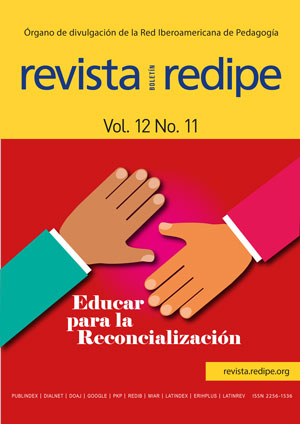La cultura escolar: Resultado de tensiones discursivas
##plugins.themes.bootstrap3.article.main##
Keywords
Cultura escolar, Discurso pedagógico, Cultura organizacional
Resumen
Las instituciones educativas constituyen un espacio de interacción de fuerzas entre actores, agencias y campos de producción y reproducción discursiva, en los que se visibilizan ejercicios de poder y control en la transmisión de la cultura escolar.
A nivel macro, se posicionan prácticas discursivas como la del Estado expresado en el marco legal y autoridades que normativizan y supervisan las acciones educativas, la de los gremios de docentes cuya posición censura las decisiones gubernamentales, Y la de organizaciones internacionales promotoras de reformas educativas; además de ellos, los discursos de orden subjetivo que proviene de los docentes, estudiantes y familias. Por esta razón, la comprensión de las instituciones educativas a partir del entramado comunicativo y las relaciones sociolingüísticas expresadas en códigos y pedagogías que configuran la transmisión de la cultura escolar y develan ejercicios de clasificación y enmarcamiento, aceptación y resistencia, como resultado de prácticas discursivas en todos los niveles, mediante un proceso reflexivo de indagación y exploración de significados y dispositivos inmersos en la cultura escolar, a partir de la estructuración del discurso pedagógico postulado por Basil Bernstein.
Referencias
Bernstein, B. (1996). Pedagogía, control simbolico e identidad. Madrid: Morata
Braslavsky, C., & Cosse, G. (1996). Las Actuales Reformas Educativas en America Latina: cuatro actores, tres lógicas y ,ocho tensiones. Buenos Aires.
Bruna, S., Camacho, D., Faletto, E., Portantiero, J. C., Ramirez, G., Verdesoto, L., . . . Zabaleta, R. (1982). America latina: Desarrollo y perspectivas democraticas. San jose, costa Rica: Flacso.
Cultura e. (s.f.).
Escalera Castillo, I. (2014). Las instituciones educativas y su cutura, creencias y practicas construidas a traves del tiempo.
Fernandez, M., & Gutierrez S, M. (2005). Organizacion escolar, Profesion Docente y entorno comunitario. Madrid: Ediciones Akal S:A:.
Galvez, I. E. (2005). Reflexiones en torno a la calidad educativa. Tendencias pedagogicas, 17-28.
Herrera, J. D. (2008). implicaciones del pensamiento complejo para la investigacion cientifica. Actualidades pedagogicas, 119-127.
Iyanga Pendi, A. (2006). Poltitica educativa naturaleza, historia, dimensiones y componentes acctuales. Valencia: Nau Llibres.
Manes, J. M. (2004). Marketing para instituciones educativas. Buenos Aires: Edicines Granica S.A.
Martinez, V., & Perez, O. (s.f.). Cultura escolar y mejora de la educación. Obtenido de https://organizaciondecentros. wikispaces.com/file/view/cultura_ escolar_mejora.pdf



